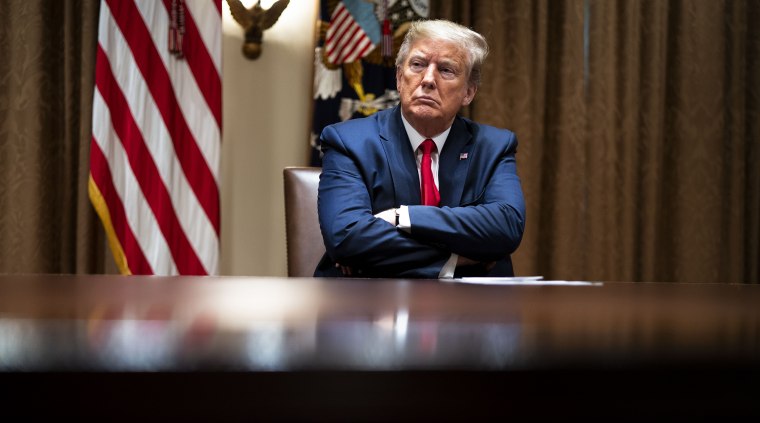Earlier this week, when governors were balking in response to Donald Trump's "total authority" rhetoric, the president thought it'd be a good idea to push back with a cultural reference. He wrote on Twitter:
"Tell the Democrat Governors that 'Mutiny On The Bounty' was one of my all time favorite movies. A good old fashioned mutiny every now and then is an exciting and invigorating thing to watch, especially when the mutineers need so much from the Captain. Too easy!"
Team Trump occasionally tries to incorporate cultural references into its political messaging, usually in ways that prove to be problematic. Secretary of State Mike Pompeo's recent Simpsons reference, for example, proved largely the opposite of the point he intended to make. The president's allusion to the wall in Game of Thrones was similarly unwise.
But this week's message was a little more specific: by his own description, Trump considers Mutiny on the Bounty one of his favorite movies ever, which is worth pondering.
The movie, which was inspired by real events and which has been told on film many times, tells the story of Captain William Bligh of the HMS Bounty. Every version of the narrative paints a roughly similar picture: Bligh was a brutal and despised captain. He stole the ship's food; he viciously abused his crew; and he made costly mistakes. Bligh is shown to be captain who was both paranoid and arrogant. As the story goes, he eventually clashed with his first mate and was forced from the Bounty in a mutiny.
In the 1962 version -- the only iteration I've seen -- a military court ultimately concluded that Bligh never should have been captain of the ship in the first place.
When the American Film Institute put together a list of cinema's 100 greatest villains, there's a reason Captain Bligh ranked #19.
All of which brings us back to Trump, who apparently sees governors as crewmates who answer to him (they don't) and sees himself as Bligh.
Perhaps he didn't fully understand the story. The captain was the bad guy. He's shown to be cruel and untrustworthy. When he tried to lead, Bligh failed so spectacularly that he sparked a rebellion from members of his own team.
Given the larger global circumstances, there are vastly more important things to ask the president about than his film preferences. But I am curious why, exactly, Trump feels like he can relate to Bligh.
